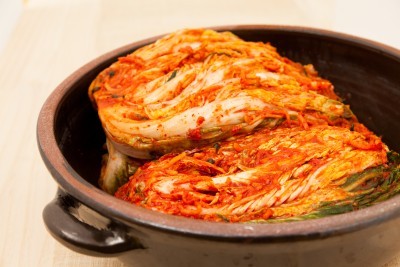
작년 전국 초ㆍ중ㆍ고등학교 급식으로 인한 식중독 발생률이 전년보다 80%가 증가한 것으로 나타났다.
교육부는 2011년 30건이던 학교 급식 식중독 사고가 2012년 들어 54건으로 급증했다고 9일 밝혔다. 2012년 식중독으로 인한 초ㆍ중ㆍ고등학생 환자 수는 2011년 2천61명에서 54.5%가 증가한 3천185명에 이른 것으로 밝혀졌다.
교육부에 따르면 2006년 이후 점차적으로 감소 추세를 보이던 전국 교내 식중독 건수가 2007년 이후 5년 만에 처음으로 늘어난 것이다.
월별 통계를 보면 9월이 1천162명의 환자로 가장 많았고, 8월이 267명, 11월이 258명으로 그 뒤를 이었다.
지역별로는 경기도에서 14건, 인천에서 11건으로 두 지역에서 총 건수의 절반 정도를 차지했다.
교육부에 따르면 식중독 급증의 주요 원인은 급식업체에서 납품한 김치에 있는 것으로 드러났다.
급식업체들이 배추를 씻는 과정에서 노로 바이러스에 오염된 지하수를 사용하면서 식중독으로 번진 것이다.
2012년 식중독을 일으킨 원인으로는 대장균이 42.6%, 노로 바이러스가 35.2%로 가장 많은 것으로 드러났다.
이에 교육부는 식품위해요소중점관리기준(HACCP) 인증을 받은 김치만 납품 받아 급식을 하도록 학교마다 지시했다고 전했다. (코리아헤럴드)
<관련 영문 기사>
Food poisoning surges in schools
Food poisoning cases among school children in Korea increased sharply last year compared to the year before mainly due to contaminated kimchi served in school meals, the Ministry of Education announced on Sunday.
Last year, 54 food poisoning cases were reported throughout the nation, an 80 percent increase from 30 cases the year before.
Food poisoning at schools had been on a gradual decline since 2006 until last year, when 3,185 school children received hospital treatments, a record high in five years.
By month, the most school food poisoning cases occurred in September, right after the heat wave and heavy rain season end, with 1,162 children receiving hospital treatments. August followed with 267 and November with 258.
Half of the total food poisoning cases were reported from schools in Gyeonggi Province and Incheon, with 14 and 11 cases, respectively.
The ministry said kimchi contaminated by bacteria was found to be the main reason for the rise in food poisoning cases.
A total of 16 food poisoning cases related to contaminated kimchi were reported across the country with 1,201 children receiving treatment from hospitals. Only five such cases were reported the year before.
Food poisoning caused by kimchi is usually due to unsanitary washing procedures in which cabbages are rinsed with norovirus-contaminated underground water.
After another norovirus-related school food poisoning case was reported in North Jeolla Province this April, the MOE ordered that schools should only accept kimchi that has received a HACCP certification, which is a system to prevent hazards in the production process.
By Kwon Bum-joon (bjkwon@heraldcorp.com)










![[Hello India] Hyundai Motor vows to boost 'clean mobility' in India](http://res.heraldm.com/phpwas/restmb_idxmake.php?idx=644&simg=/content/image/2024/04/25/20240425050672_0.jpg&u=)







